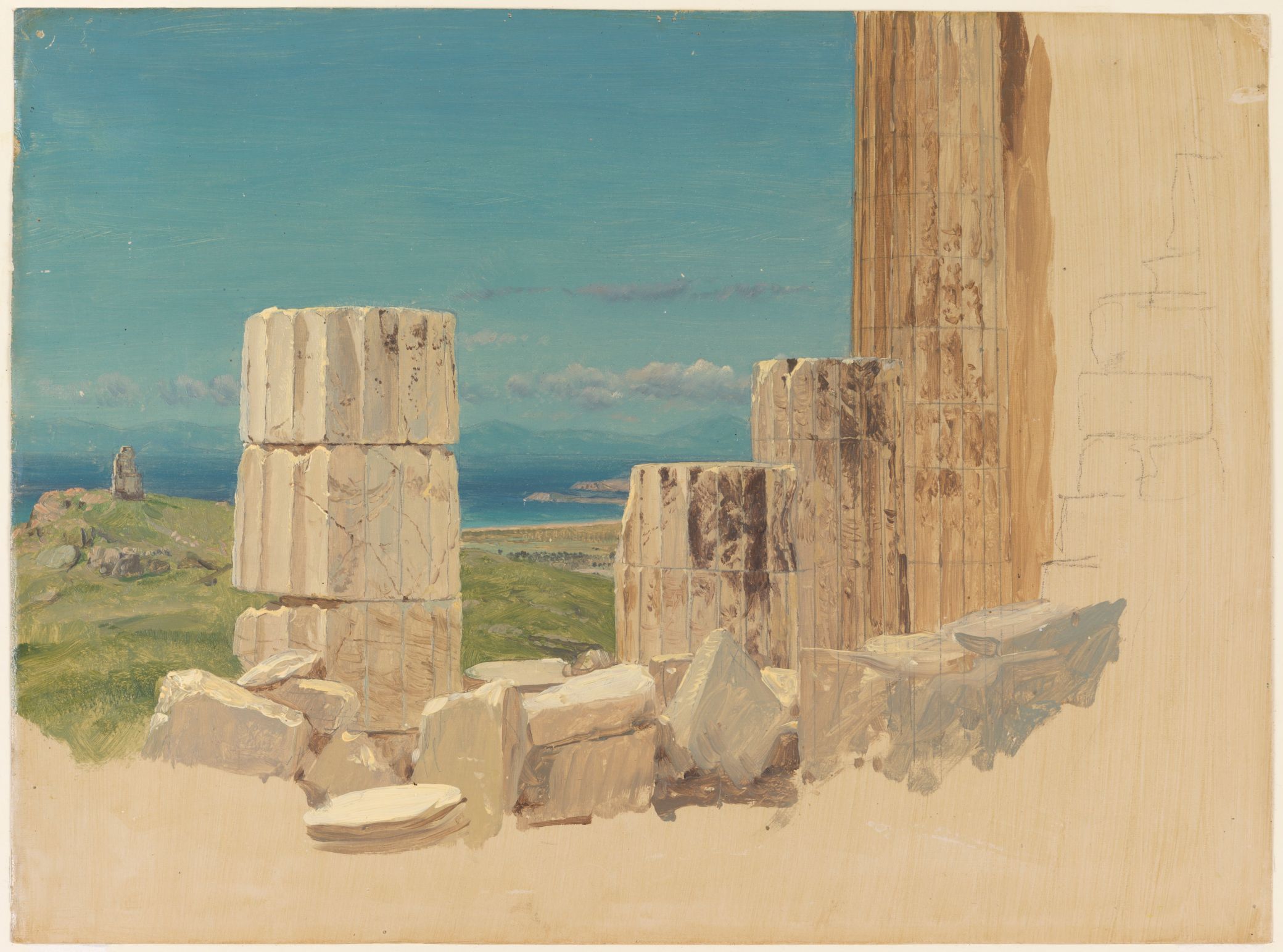
Broken Columns, Frederic Edwin Church, 1869. Smithsonian Institute, Gift of Louis P. Church.
• “The notion of illumination via obscuration that surrounds the early modern camera obscura carries remnants of the medieval period’s approach to darkness as the medium for perceiving the glorious light of God.” (Pubic Domain Review)
• How the World Wide Web was rebranded for the “privatization of American leisure.” (TIME)
• “Perhaps the Renaissance appeals to the modern imagination because it was an invention of the modern imagination.” (New Yorker)
• Twenty years of life in Chinatown: “We subsume American brands into our culture rather than the other way around.” (Hyperallergic)
• The ancient civilization behind the myth of the Minotaur. (History Extra)
• “By underwriting Israel’s genocidal onslaught—financially, materially, and ideologically—so flagrantly these twenty-two months and counting, Western governments have hastened the final discrediting of the rules-based legal order that the West itself developed in the wreckage of World War II, structured around the four interlocking norms of the illegality of aggressive war, universal human rights and civilian protection, accountability for atrocity crimes, and multilateral cooperation.” (Boston Review)
• Watch: Empire Skate, a new documentary about 1990s New York City’s skateboarding scene. (Huck)
• Listen: News and propaganda broadcast during World War II. (Library of Congress)
• Further reading: On Herman Melville’s cosmic cetology; and The World in Time, Ep. 8: Herman Melville, Extracted.
• This week in obituaries: Odeh Hadalin, Ibrahim Majed Ali Nasr, Khamis Abdul Latif Ayad, Mahrez Abu Ouda, David Nabarro, Didarul Islam, Aland Etienne, Julia Hyman, Wesley LePatner, Tom Lehrer, Laura Dahlmeier, Wallis Annenberg, Dwight Muhammad Qawi, John Saladino, Robert Wilson, Horst Mahler, Morton Mintz, Michael Ochs, Ziad Rahbani, Joan Anderson, Ryne Sandberg, Kim Fellner, Cleo Laine, and at least eighty-six people who have starved to death in Gaza in the past ten days.